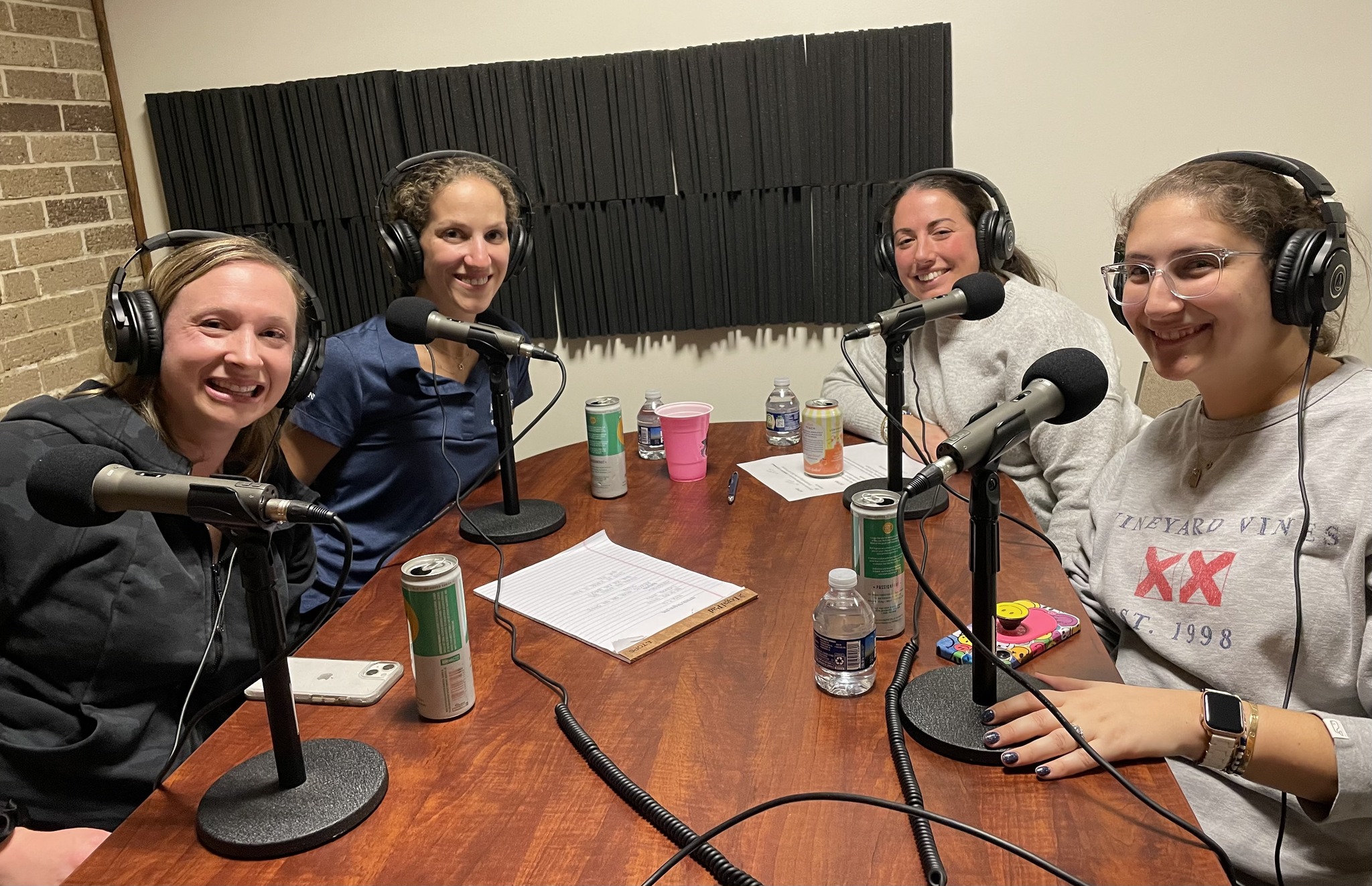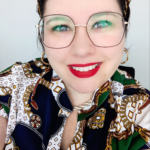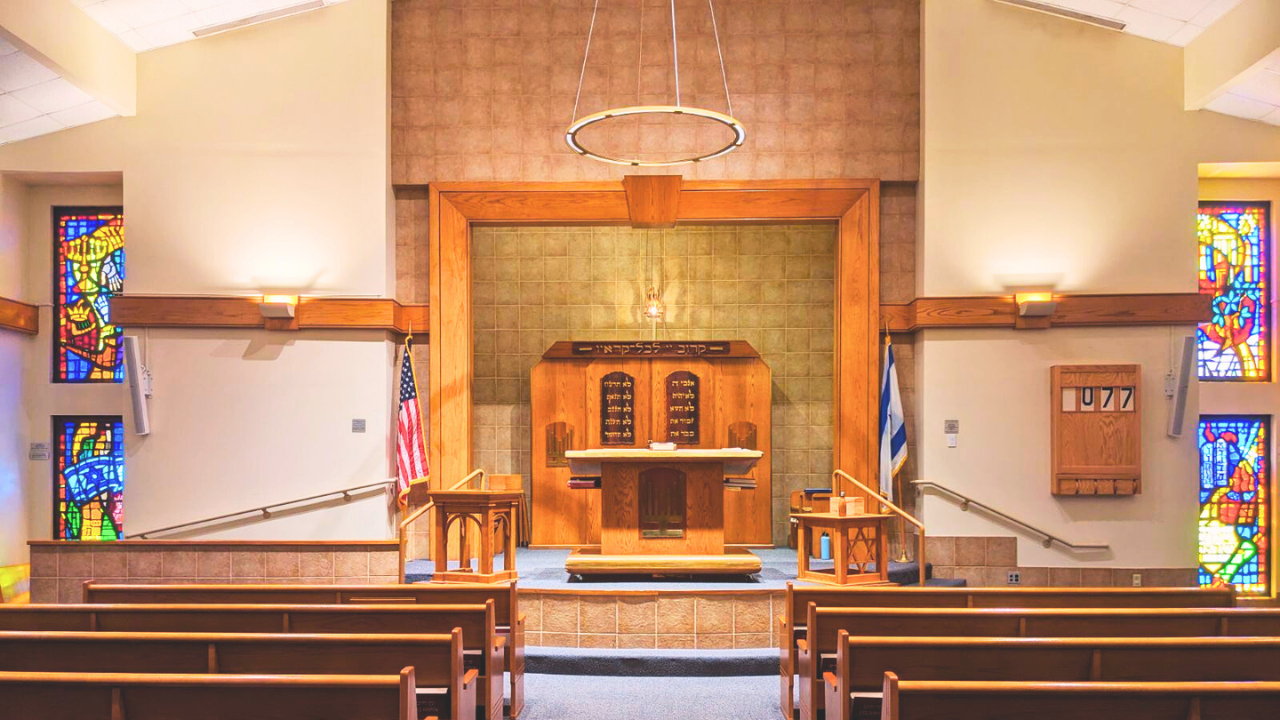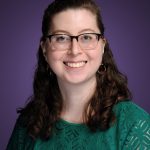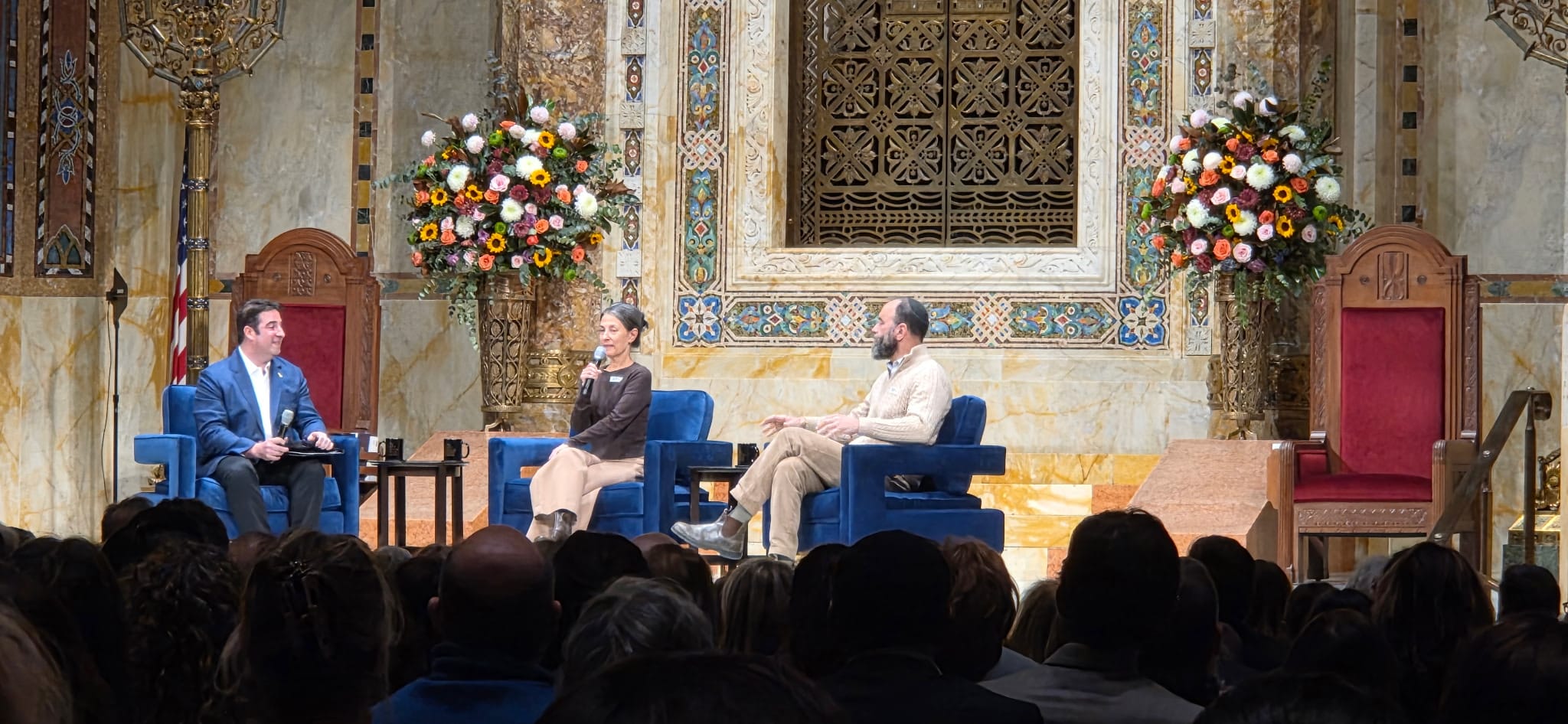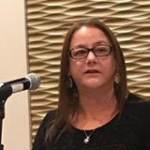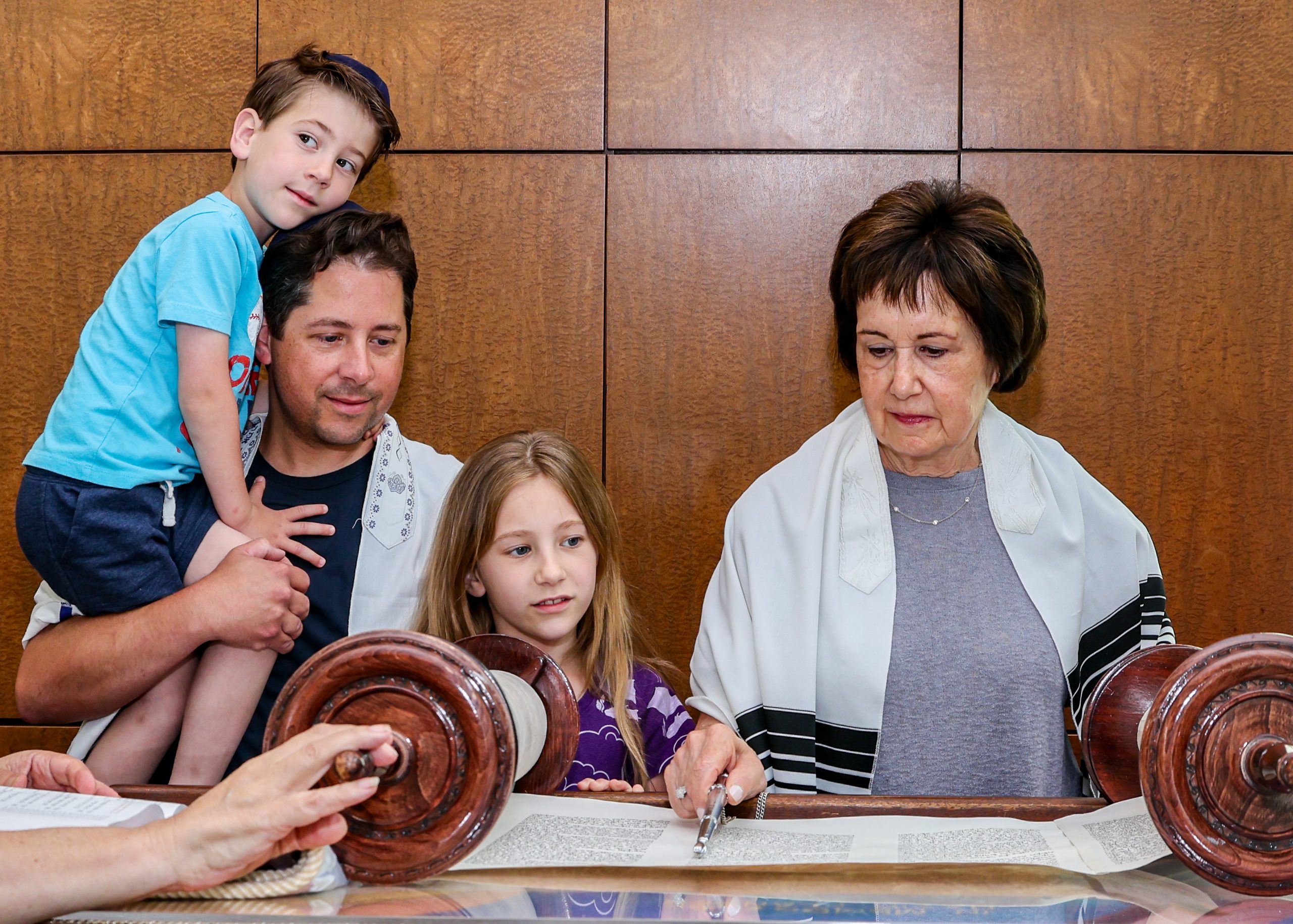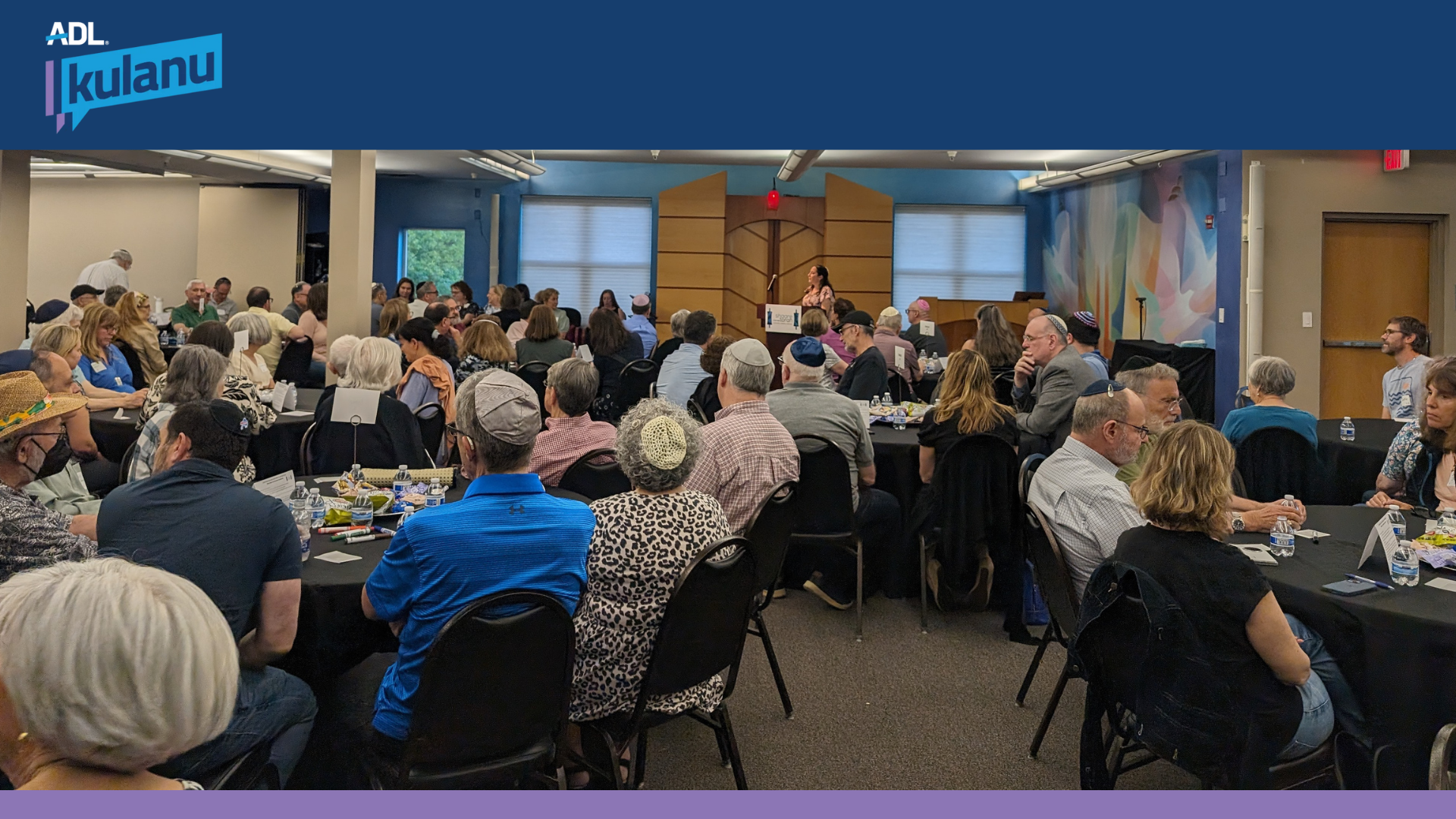
“The stranger who dwells with you shall be like a native among you, and you shall love him like yourself, for you were strangers in the land of Egypt.” Leviticus, 19:34
One morning last winter, a woman came through the entrance to Ohavi Zedek Synagogue in Burlington, VT. In her hand was a sheet of paper. Not English-speaking and a new arrival to the United States, the woman didn’t know how to read it or ask for help.
Grace Oedel, the synagogue’s Executive Director, had seen this before. Her office is right by the entrance.
“You realize how unbelievably challenging it can be to get plopped down in a new country not speaking any language that you’ve ever studied before, and suddenly you have to navigate a whole world,” Grace says.
She left her desk and, with a reassuring smile, led the Syrian refugee to her first class in English.
One of the ways we live our Jewish values in the world.
Many times in Jewish texts, we are commanded to love and welcome the stranger—the alien, the immigrant, the person who may be different from us. Rising to the challenge is Ohavi Zedek Synagogue in Burlington, VT, winner of the USCJ 2017 Solomon Schechter Award for Prophetic Voice. They run a suite of programs for refugees, recent immigrants, new Americans and other faiths. They call this effort Welcoming the Stranger.
English language classes, given by the Vermont Refugee Resettlement Program and hosted by Ohavi Zedek, are one leg of this large program.
One of the first stops immigrants and refugees make in Burlington.
Burlington is a designated refugee resettlement city and Ohavi Zedek works with many local organizations to help immigrants and new Americans find their way in what must be a very strange world.
These organizations will often bring new arrivals to the synagogue thrift shop, better known by its official name, Shalom Shuk.
Built in a converted historic barn on the Ohavi Zedek property, Shalom Shuk is one of the more popular destinations for bargain hunters in the area. A non-profit endeavor, the thrift shop also distributes thousands of dollars in vouchers for free goods to organizations that serve low-income families and the homeless, as well as new arrivals.
“People often come to this country with just one suitcase and the clothes on their backs,” Grace notes. “They come to the Shalom Shuk and we help them set up apartments, provide winter clothing for the kids… whatever we can.”
When the “stranger’ includes friends and neighbors.
Interfaith programming also comes under the Welcoming the Stranger umbrella at Ohavi Zedek. One intensive program that Rabbi Amy Small created, Children of Abraham, brought more than 25 Jews, Christians and Muslims together for seven consecutive days, three hours a day. The final days of the program—a Friday, Saturday and Sunday—the participants attended each other’s religious services.
Participants gained a greater understanding and appreciation for each others’ customs, traditions and practices.
Ohavi Zedek recently hosted a lecture series with Israeli author Yossi Klein Halevi and Duke University’s head of Muslim Affairs, Imam Adbullah Antepli. Together they run the Muslim Leadership Initiative, working to change the way Jews and Muslims understand and relate to each other. More than 250 Jews, Christians and Muslims participated in the program.
Jewish, Christian and Muslim solidarity in challenging times.
Rabbi Amy Small and Executive Director Grace Oedel sit on a number of interfaith panels where they see new political realities affecting people on personal levels.
When the results of the 2016 presidential election emboldened racists, anti-Semitic flyers turned up at a town hall meeting in Burlington. Members of Burlington’s Christian and Muslim communities called to offer support and comfort.
While that was happening in the Jewish community, the travel ban hit Burlington’s Muslims particularly hard. Their nearest source for Halal meat was across the border in Montreal. Leaving the U.S., even with a green card, became a risky endeavor as people trying to make routine crossings were detained and searched, and increasingly people felt scared to cross the border at all.
Preparing to participate in the sanctuary movement.
Hearing all this, it should be no surprise that Burlington, VT is a sanctuary city and Ohavi Zedek serves on the Vermont Interfaith Action Sanctuary Conference. The synagogue Board of Directors is exploring ways to support people who are undocumented and in danger of deportation. Pro bono legal work, lobbying legislators and generating publicity are among the ideas being considered. “We’re still in the learning phase,” Grace acknowledges.
It all comes back to Welcoming the Stranger.
For more than a decade, Ohavi Zedek has welcomed New Americans to their synagogue on Passover with an Interfaith Seder. Using the Passover Story and its framework of persecution and liberation, they invite recent immigrants to share their stories of escape from poverty and violence. In addition to the Hebrew prayers, portions of the Haggadah are translated into five languages for their guests.
“At the Seder, we teach children about our own history of having been persecuted in a land which was not our home,” Grace says. “These New Americans make us think, what form would that take now? What would it look like? How would it feel?
“As Jewish people, we have to remember our history as strangers, and embody how we wish to be treated and how we wish all people will be treated.”
At Ohavi Zedek, that’s exactly what they’re doing.

